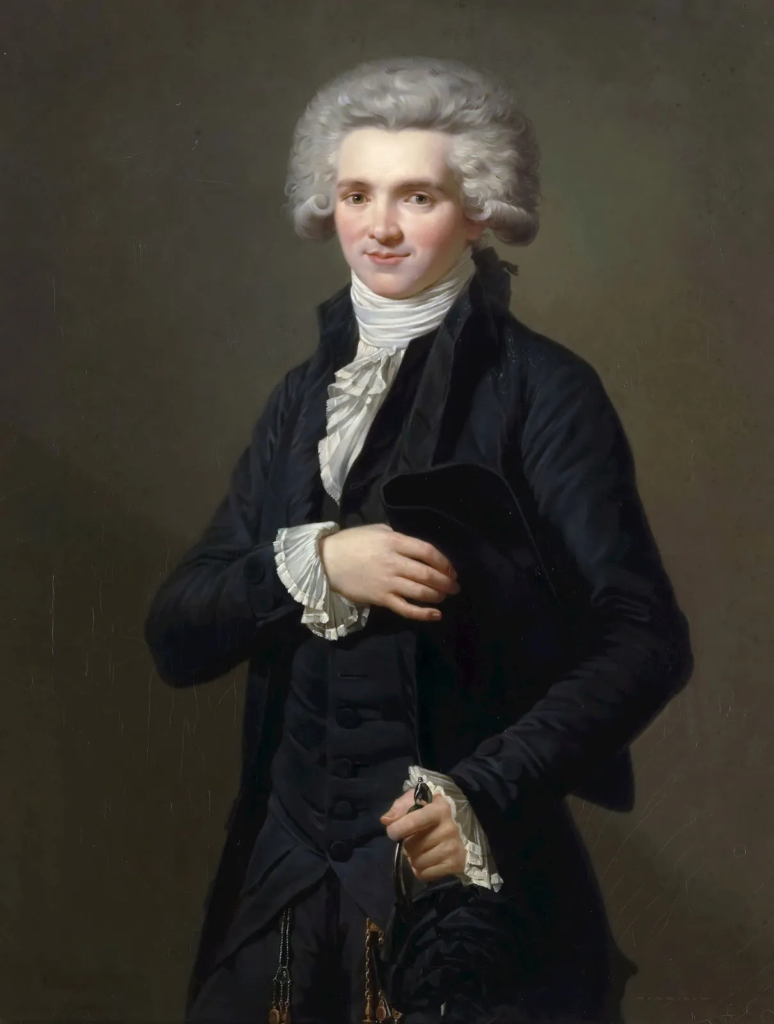- What happens during the Thermidorian Reaction?
- Is this the end of the revolution?
- Did the French Revolution achieve anything?
What happens during the Thermidorian Reaction?
Robespierre and his fall from power

The National Convention rules France and the Committee of Public Safety ensures that it does so. One of the leaders of the Convention was Maximilien Robespierre.
- He believed in the following:
- the cult of the Supreme Being, a new religion.
- eliminate all enemies of the revolution (the Reign of Terror)
- execute the monarchs to prevent a loyalists to him from launching a counter revolution
- universal suffrage (everybody can vote)
- unrestricted access to public offices (anybody can reach the top!)
- the right to petition (you can protest)
- end slavery
- war with Austria would only destroy the revolution so France should not fight.
- ‘In May 1794, an assassination attempt was made on Robespierre’s life. He responded by intensifying the Terror; the Law of 22 Prairial eliminated the need for evidence to be presented before the Revolutionary Tribunal and ensured only one of two verdicts could be rendered: acquittal or death.’ Maximilian Robespierre
- Which of these beliefs do you think led to the end of Robespierre as leader of France?
- According to this movie clip, why did Robespierre fall from power?
- What were the consequences of the fall of Robespierre? Before watching it, make sure you understand the keywords below.
- Dictator: A person who has total power over a country.
- Coup d’etat: A violent seizure (taking) of power
- The Thermidorian Reaction has begun!
- Reaction – because of people in the National Convention (this used to be the National Assembly) and around France believed that the revolution had gone too far.
- Thermidor – because this was the month the change took place.

(Brinton, C. p. 205)

- To show that there is a ‘break with the past’, the moderates in this stage find a scapegoat to blame all the country’s problems on. So if there were any moderates with links to the radicals, they could now escape criticism by putting all the blame for all decisions on the scapegoat.

(Brinton, C. p. 211)
- It is ironic that there were severe economic problems in France during 1795 and 1796, possibly even worse that 1789 when the revolution broke out. But the Thermidorians did not suffer the same fate as Louis and Marie-Antoinette. There is no consensus on why this was, perhaps because the people had had enough of violence and political protest. Or that the people accept that force should be used by the government…there had been so much used since 1789 that people had got used to it.
The Church
- The Church returns!

(Brinton, C. p. 217)
Is this the end of the revolution?
- No! Some within France believe that the Thermidorians do not govern the country very well. The country remains at war with several European countries and people are unhappy that they have not been won. There is continued violence (such as the White Terror where hundreds were killed as revenge to the Reign of Terror) albeit not as bad as the Crisis Stage.
- A coup d’etat takes place in 1799 and eventually Napoleon Bonaparte becomes the leader of France. Arguably, he is an absolute monarch so the revolution has gone full circle.
- France continues to be a war until 1815.
- Why do you think absolute monarch is crossed out?

Did the French Revolution achieve anything?
- King Louis XVI’s brother, Louis XVIII, became king of France when Napoleon fell from power. However, he was a constitutional monarch, not absolute like his brother.
- According to Thoughtco, the following were the main legacies of the French Revolution:
- established the precedent of representational, democratic government, (now the model of governance in much of the world).
- established liberal social ideas of equality among all citizens, basic property rights, and separation of church and state.
